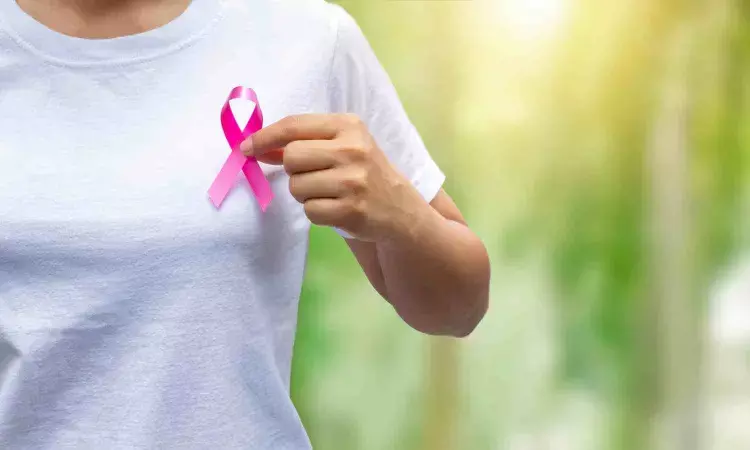- Home
- Medical news & Guidelines
- Anesthesiology
- Cardiology and CTVS
- Critical Care
- Dentistry
- Dermatology
- Diabetes and Endocrinology
- ENT
- Gastroenterology
- Medicine
- Nephrology
- Neurology
- Obstretics-Gynaecology
- Oncology
- Ophthalmology
- Orthopaedics
- Pediatrics-Neonatology
- Psychiatry
- Pulmonology
- Radiology
- Surgery
- Urology
- Laboratory Medicine
- Diet
- Nursing
- Paramedical
- Physiotherapy
- Health news
- Fact Check
- Bone Health Fact Check
- Brain Health Fact Check
- Cancer Related Fact Check
- Child Care Fact Check
- Dental and oral health fact check
- Diabetes and metabolic health fact check
- Diet and Nutrition Fact Check
- Eye and ENT Care Fact Check
- Fitness fact check
- Gut health fact check
- Heart health fact check
- Kidney health fact check
- Medical education fact check
- Men's health fact check
- Respiratory fact check
- Skin and hair care fact check
- Vaccine and Immunization fact check
- Women's health fact check
- AYUSH
- State News
- Andaman and Nicobar Islands
- Andhra Pradesh
- Arunachal Pradesh
- Assam
- Bihar
- Chandigarh
- Chattisgarh
- Dadra and Nagar Haveli
- Daman and Diu
- Delhi
- Goa
- Gujarat
- Haryana
- Himachal Pradesh
- Jammu & Kashmir
- Jharkhand
- Karnataka
- Kerala
- Ladakh
- Lakshadweep
- Madhya Pradesh
- Maharashtra
- Manipur
- Meghalaya
- Mizoram
- Nagaland
- Odisha
- Puducherry
- Punjab
- Rajasthan
- Sikkim
- Tamil Nadu
- Telangana
- Tripura
- Uttar Pradesh
- Uttrakhand
- West Bengal
- Medical Education
- Industry
Can acupuncture reduce hot flashes and other side effects of anti-hormonal breast cancer therapy?

In a pooled analysis of three clinical trials, acupuncture significantly reduced hot flashes and other hormonal side effects of endocrine therapy taken by women with breast cancer. The analysis of data from the United States, China, and South Korea is published by Wiley online in CANCER, a peer-reviewed journal of the American Cancer Society.
Endocrine therapy, which blocks hormone signaling that drives some forms of breast cancer, can be a life-saving treatment, but up to 80% of patients who take it experience hot flashes-a sudden, temporary sensation of body warmth, flushing, and sweating-and other side effects. Many patients who experience these symptoms discontinue endocrine therapy, which can put them at an elevated risk of cancer progression and death.
Other medications can reduce hot flashes, but they come with their own unpleasant side effects. Studies have evaluated the impact of acupuncture on hot flashes in women with early breast cancer undergoing endocrine therapy, with mixed results.
To provide more information about acupuncture’s potential, investigators conducted a coordinated, multinational project consisting of three independent randomized controlled trials in the United States, China, and South Korea that used the same eligibility criteria, acupuncture protocol, and study measures.
A total of 158 women with stage 0–III breast cancer were randomized to immediate acupuncture (IA) or delayed acupuncture control (DAC). IA participants received acupuncture twice a week for 10 weeks and were followed for an additional 10 weeks without acupuncture. DAC participants received usual care for 10 weeks, then crossed over to acupuncture with a reduced intensity (once per week) for 10 weeks. Standardized clinical questionnaires were used to assess hormonal symptoms—including hot flashes, night sweats, vaginal dryness, and joint pain-as well as quality of life related to physical well-being, functional well-being, emotional well-being, and social/family well-being.
At week 10 from the start of the trials, IA participants’ questionnaire scores reflected significant lessening of symptoms compared with DAC participants. Responses indicated that 64% of people in the IA group reported improvements in the number and severity of their hot flashes, compared with 18% in the DAC group. IA participants also reported greater improvements in quality of life compared with DAC participants.
Between week 10 and week 20, scores did not change significantly for IA participants. DAC participants who received weekly acupuncture during this time had significant improvements in symptom scores relative to week 10. There were no acupuncture-related side effects reported by any of the participants.
“By managing side effects, our approach makes it easier for patients to continue their prescribed medication, which has the potential to reduce the risk of cancer recurrence and improve long-term outcomes for breast cancer survivors,” said lead author Weidong Lu, MB, MPH, PhD, of the Dana-Farber Cancer Institute. “In practice, patients interested in using acupuncture for this purpose might begin with a short trial period to assess their response to the treatment, particularly in terms of reduction in hot flashes and other symptoms. If the trial period yields positive results, patients may then engage in a long-term program, receiving regular acupuncture sessions throughout the duration of their anti-hormonal medication regimen.”
Reference:
Weidong Lu, Anita Giobbie-Hurder, Anna Tanasijevic , Sylvia Baedorf Kassis, Sung Hwan Park, Young Ju Jeong , Im Hee Shin , Chang Yao, Hyun Jung Jung KMD, Zhiyuan Zhu, Chao Bao, Ting Bao, EunMee Yang, LicAc, Barbara E. Bierer, Jennifer A. Ligibel, Acupuncture for hot flashes in hormone receptor-positive breast cancer: A pooled analysis of individual patient data from parallel randomized trials, Cancer, https://doi.org/10.1002/cncr.35374.
Dr Kamal Kant Kohli-MBBS, DTCD- a chest specialist with more than 30 years of practice and a flair for writing clinical articles, Dr Kamal Kant Kohli joined Medical Dialogues as a Chief Editor of Medical News. Besides writing articles, as an editor, he proofreads and verifies all the medical content published on Medical Dialogues including those coming from journals, studies,medical conferences,guidelines etc. Email: drkohli@medicaldialogues.in. Contact no. 011-43720751


